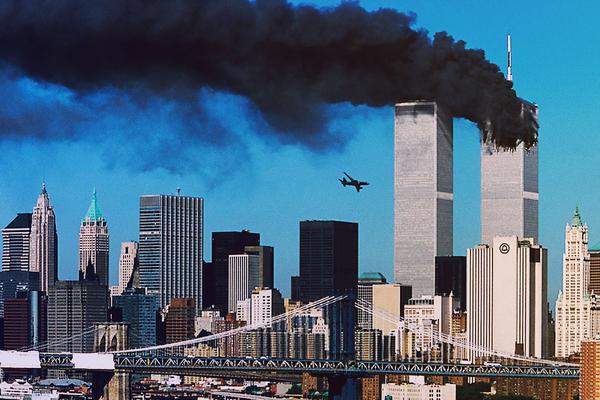We begin our tour of British newspapers with the Guardian's editorial, which was titled: "On the twentieth anniversary of 9/11: No end in sight."
The newspaper said that if the killing of the mastermind of the September 11, 2001 plot, Osama bin Laden a few months before the tenth anniversary of the attacks, left some hope that the end of that new era might be imminent, it cannot be there. Such a false confidence" on the 20th anniversary.
The newspaper notes that the formation of the Taliban government in Kabul, two decades after the United States overthrew the movement's government for harboring bin Laden, has confirmed two things: the United States seems more vulnerable today, and the echoes of September 11th are still reverberating throughout area - but it won't just stay there.
The newspaper says that the same base remains and there are similar groups. She added that the threat from terrorism continues in the West, although the nature of the threat has shifted to more localized and less sophisticated attacks.
The Guardian quoted Ken McCallum, the head of Britain's MI5 intelligence agency, as saying that the military intelligence agency had prevented six terrorist plots "in the late stages" during the epidemic, and that with the victory of the Taliban, "more dangers may gradually flow into the country." our way."The newspaper indicated that the insistence on seeking a military solution in Afghanistan fueled the political problems, although history should have warned America.

The Guardian said that the refusal to accept the surrender of the Taliban in Afghanistan paved the way for America's longest war. She went on to say that the Islamic State arose out of the ashes of the invasion of Iraq.
And it considered that the extraordinary deportations, torture and atrocities committed in Abu Ghraib, and the unwillingness to acknowledge or atone for the killing of civilians at the hands of US forces or its allies, led to the ignition of the fire. She added that these violations and crimes were not an anomaly from the norm, but rather were part of the "war on terror".
The newspaper indicated that the United States witnessed, during that period, a massive expansion of presidential power. A narrative linking immigration to terrorism was promoted and resulted in broader intolerance, as well as encouraging the belief that ordinary citizens were at war.
The Guardian considered that it was not difficult to anticipate the rise of Donald Trump and believe in white supremacy, or right-wing populism in other countries. In the United States, she added, far-right terrorist groups were behind most of the attacks last year.
She said the biggest risks now facing the United States are not external but internal, as the divided country's future looks increasingly precarious.
The Guardian ended its editorial by noting that no matter what many in the country once believed, American citizens cannot be insulated from the dangers of the outside world.
The problem is not "always elsewhere," she added, noting that on September 11, the country moved from "the dream of endless calm at home to the nightmare of eternal war."
She said that with the return of American soldiers from Afghanistan, the United States has become farther away from the enemy. But the conflict continues by other means and without soldiers on the ground, drone strikes are more likely than ever to take the lives of civilians as well as suspected terrorists.
"The United States and the West cannot be safe at home while insecurity prevails abroad," she added.
